



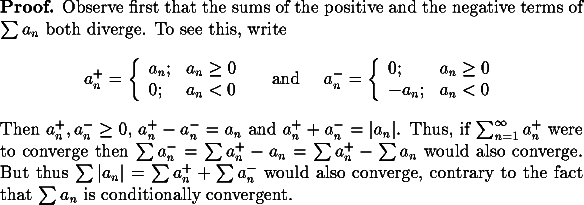
This means that if we were to start at any point N and add up the positive terms after that point in order, then the partial sums would be unbounded above. Likewise if we added up the negative terms following N in order then the sequence of partial sums would be unbounded below.
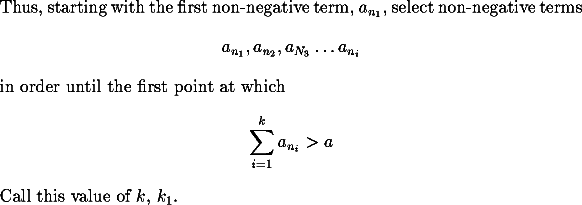
 What happens if the very first term is already greater than a?
What happens if the very first term is already greater than a?
 How do we know that the sum ever reaches values greater than a?
How do we know that the sum ever reaches values greater than a?
 How do we know that the point k1 is ever reached?
How do we know that the point k1 is ever reached?
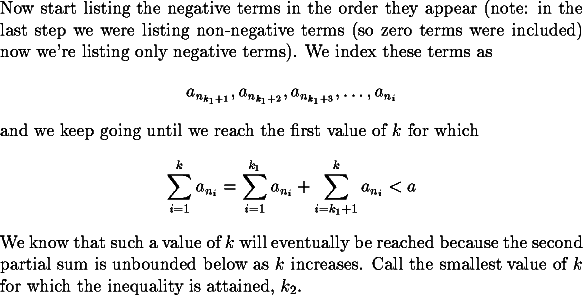
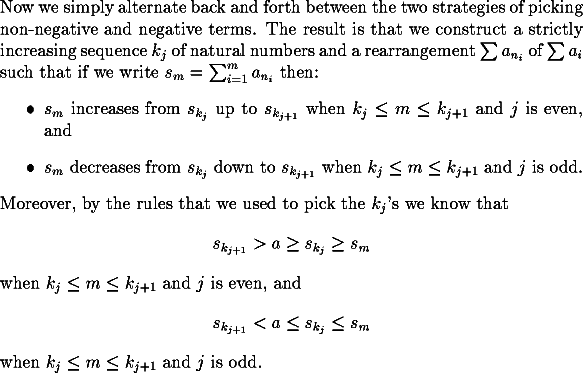
It remains to put this all together and show that the partial sums sm converge to a.
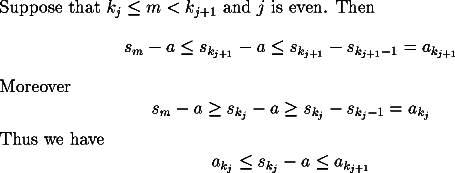

 Try to prove this. (The simple
properties of the absolute value function may help.)
Try to prove this. (The simple
properties of the absolute value function may help.)
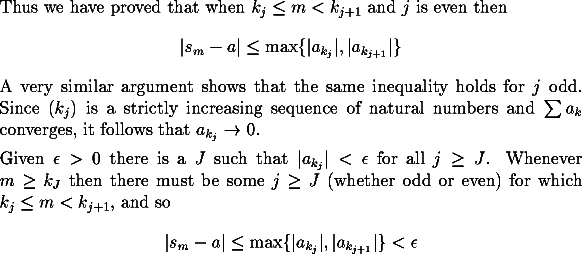

Analysis WebNotes by John Lindsay Orr.
Comments to the author: jorr@math.unl.edu
All contents copyright (C) 1996 John L. Orr University of Nebraska--Lincoln All rights reserved

Last modified: May 1996